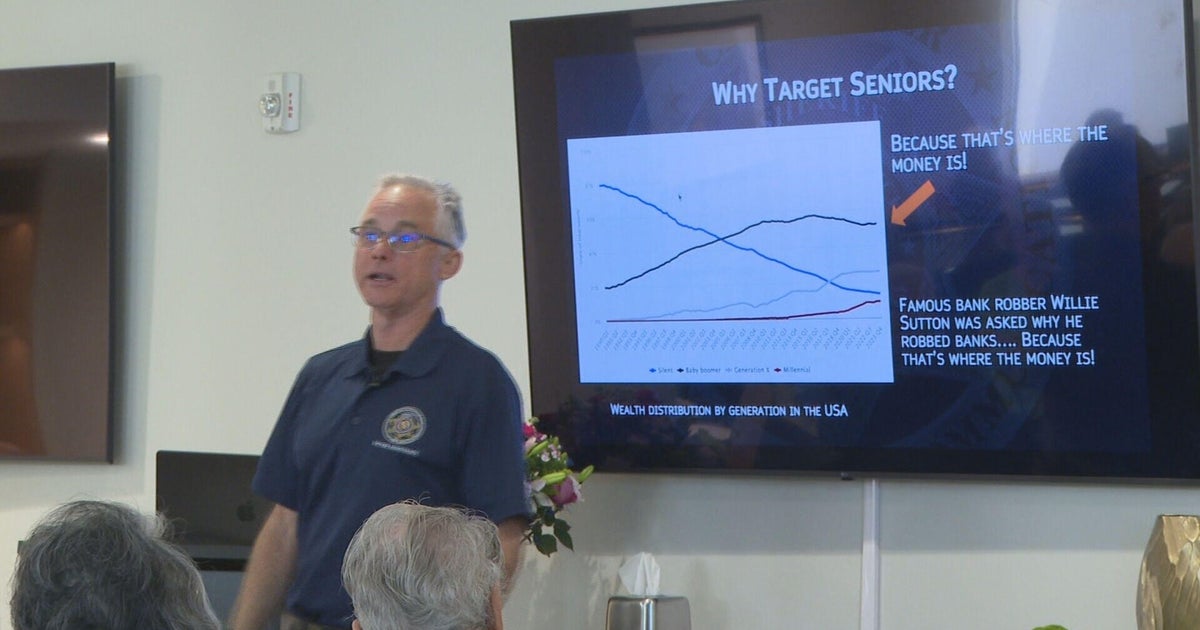Watkins Wants State To Pass Racial Justice Act
DALLAS (AP) - The Dallas prosecutor who built a reputation for freeing wrongfully convicted inmates says he has an idea to advance criminal justice reform in Texas: allowing defendants to appeal convictions and sentences on the basis of race.
Craig Watkins, the Dallas County district attorney, said in a recent interview that he wants lawmakers to consider what he called the Racial Justice Act. Such an act might allow defendants to introduce evidence, either in their specific case or through general statistics, to argue that their prosecutions or sentences were influenced by race, he said.
"The issue that we're bringing to light is to make sure that everything is fair, no matter what you look like, no matter where you come from, and you're treated just like anyone else," Watkins said. "And if you deserve a death sentence, then you will get it. If you didn't, then you shouldn't be on death row."
Watkins said he plans to discuss the idea with lawmakers and hopes to have a bill filed in the next few months.
It's unclear whether the bill could garner enough support to make its way through the Republican-dominated Legislature, expected by observers to be one of the most conservative in state history. In two states that have passed similar acts, the bills have had some impact and occasionally caused controversy.
At least one prominent advocate for criminal justice reforms, Innocence Project of Texas chief counsel Jeff Blackburn, said he was skeptical.
"I think the chances of getting something like that done are between slim and none," Blackburn said. He added, "I think that on a practical level, this kind of Legislature, you've got to be tightly focused."
State Sen. Rodney Ellis, D-Houston, a prominent criminal justice advocate, said he would consider a bill.
"I think it is a good idea that needs to be explored and I am going to talk with some other lawmakers to see if we can get bipartisan support for this initiative," Ellis said through a spokesman. Other lawmakers declined to comment or did not return messages.
Watkins, the first black district attorney elected in Texas, said he wants to raise issues that "in polite conversations are never mentioned," like the impact of race on the courts.
A number of academic studies have argued that a racial disparity in sentencing exists. One 2008 study by a University of Denver professor concluded that black defendants in Harris County, which includes Houston, were more likely to get a death sentence than white defendants.
Blacks comprise 40 percent of Texas' nearly 300 death row inmates while just 11 percent of the state's population is black. Researchers caution, however, that such raw numbers don't take into account a number of different factors.
Despite several reforms passed in recent years that have expanded DNA testing and compensated the wrongfully convicted, Watkins said Texas still comes up short. In Dallas County, 28 of the 33 people who have been exonerated of crimes since 2001 are black, according to Debbie Denmon, spokeswoman for the DA's office.
"I would imagine that there are individuals, not just in prison, but particularly on death row, that were convicted because of the color of their skin," he said.
Any racial justice act, Watkins said, would put the burden on defendants to prove they had been wrongfully sentenced or convicted due to race, either through statistics that show a disproportionate impact on other minority defendants or through actual evidence that prosecutors had threated them unfairly.
Kentucky's law, passed in 1998, allows a defendant facing the death penalty to seek a hearing under the act before trial. Only a tiny number of defendants have successfully taken the death penalty off the table, said Allison Connelly, a professor at the University of Kentucky College of Law who has studied the act.
The North Carolina Legislature passed a bill in 2009 that allowed defendants to use statistics and other evidence. But after Republicans won control of the Legislature the next year, lawmakers unsuccessfully tried to repeal the bill. The Legislature last year barred many statistics from being used, limiting defendants only to direct evidence that applied to their cases.
Officials with the Texas District & County Attorneys Association, the state prosecutors' group, said they weren't aware how prosecutors felt yet about a potential act. But Watkins said he wasn't concerned if the idea would be unpopular with other prosecutors.
"We don't make a determination on what we're going to do based upon what other DAs are doing in the state. We've never done that," Watkins said. "We're just going to keep pushing the envelope forward to make justice work for the state of Texas, and Texas has an opportunity to lead the country when it comes to what it means to be a prosecutor and what justice is."
(© Copyright 2013 The Associated Press. All Rights Reserved. This material may not be published, broadcast, rewritten or redistributed.)
Also Check Out:







